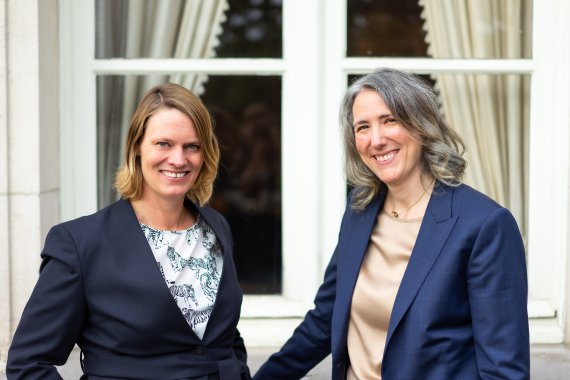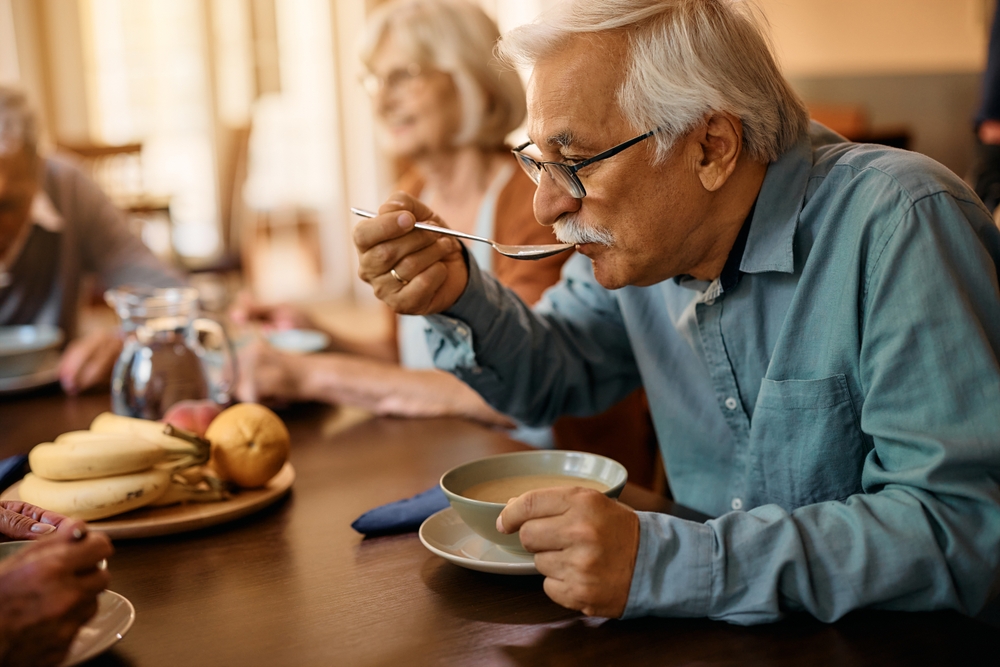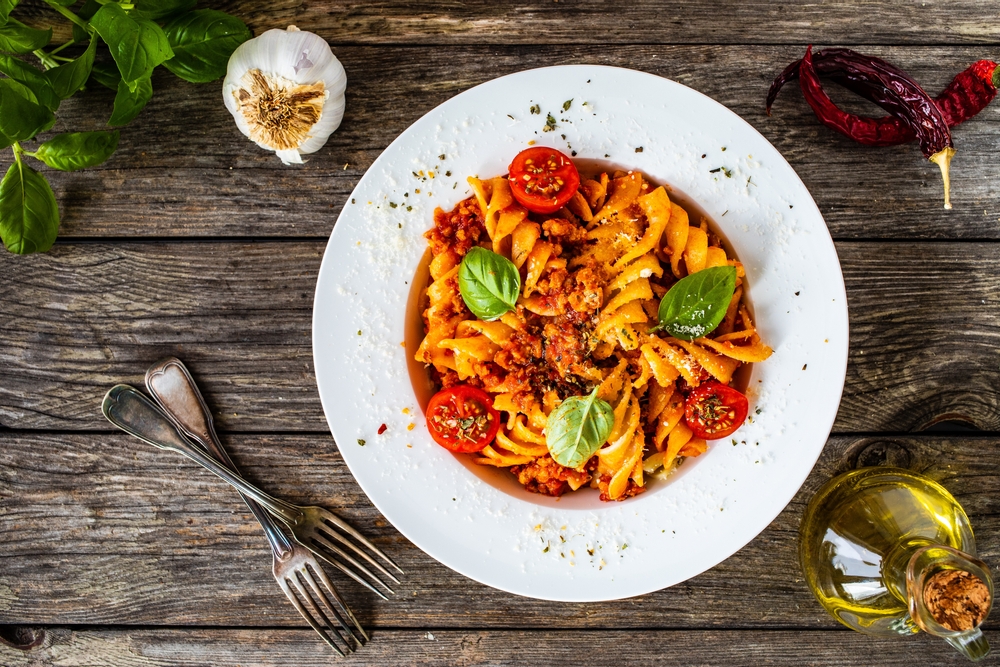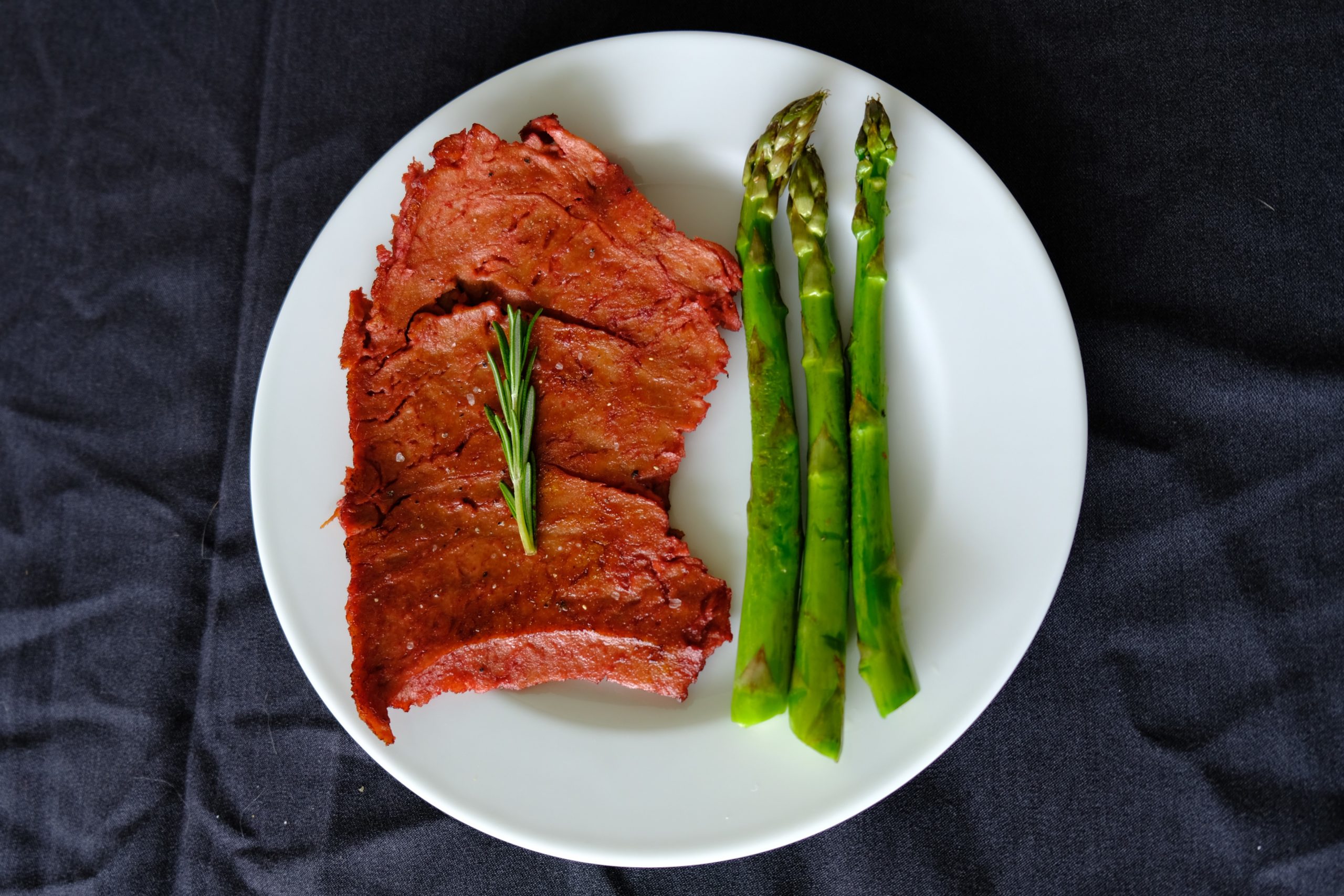Emely de Vet (left) and Stacy Pyett. © WUR
Pyett and De Vet place the protein transition in the context of the United Nations sustainable development goals. To feed the growing world population and combat climate change, we need to develop sustainable protein sources. In addition, we will need to eat more vegetable proteins and less meat, although animals will continue to play an important role in the food supply, according to the WUR scientists.
Breeding
To make this food transition possible, we should start with a different approach to plant breeding. Firstly, we will need to grow crops in such a way that they have a higher protein content and do so without using artificial fertiliser. In addition, we should not only use the fruits in the food chain, but also the stems and leaves of the plants. Crops that immediately come to mind are legumes such as lentils and chickpeas, as those plants also capture nitrogen in the soil.
Algae
Secondly, Pyett and De Vet expect a lot from the development of aquatic protein sources, such as seaweed and algae. Thirdly, they foresee the development of industrial protein production through the use of bacteria, yeasts and fungi. A fourth track would be making livestock farming circular.
Redesign
To make this possible, we will need to redesign of our food system, the researchers continue. Pigs and insects must become a part of food cycles, converting waste into high-quality proteins. Farmers will grow duckweed and algae, at the same time reducing the nitrogen surplus in the surface water, the researchers reason. Part of the transition will also be convincing consumers to choose sustainable food based on insects and seaweed.
Preservation
Knowledge institutions such as WUR will also have to adjust their agenda. Plant breeders need to make plants resilient to climate change and make them more resistant to drought, heat and salinisation. And scientists need to collaborate with policymakers and companies to develop circular systems that provide new protein sources. In addition, research into mild food preservation, which requires less energy and water, should be continued, De Vet and Pyett advise.
Legislation
The researchers advise the EU to broaden the legislation in order to quickly develop new protein sources and circular systems. They also advise companies to find chain partners to jointly market insect-, seaweed- and algae-based foods.
Together with Louise Fresco, Pyett and De Vet presented the Mansholt lecture by WUR in Brussels on 18 September, in front of an audience of EU officials and European politicians. It is the fourth time that WUR gave a Mansholt lecture in Brussels.




